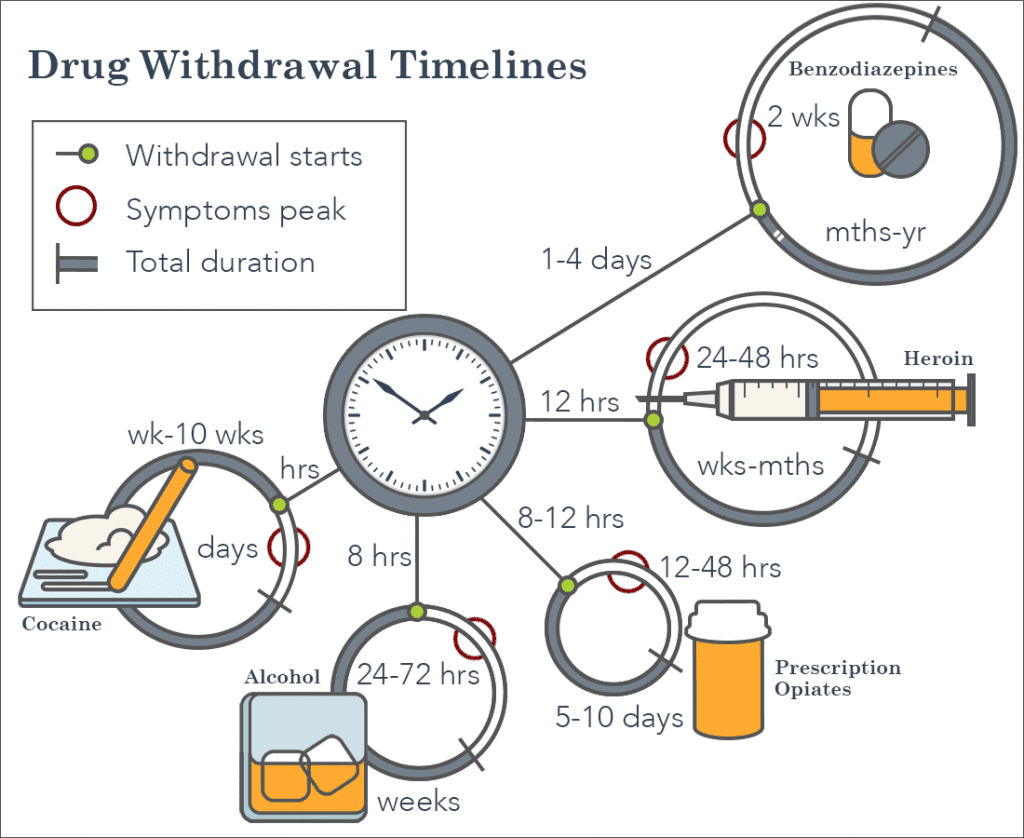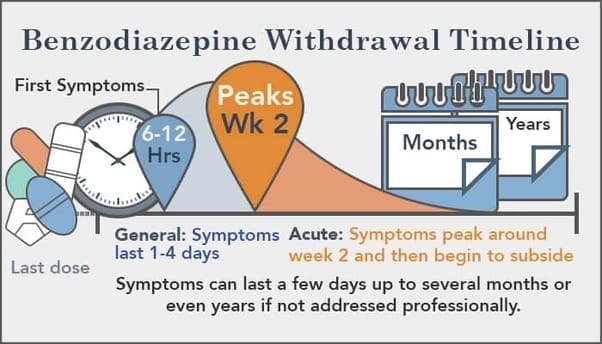-
Call Us: 0330 111 2015


Jump to a section ▼
› Introduction
› What causes prescription drug withdrawal symptoms?
› The effects of prescription drug withdrawal symptoms
› Factors that affect withdrawal symptoms
› Prescription drug timelines of withdrawal
› Help for prescription drug withdrawal symptoms
Speak with our admission team
Call now on 0330 111 2015If you have been abusing prescription drugs or have a prescription drug dependence, one of the biggest blocks to recovery can be the fear of prescription drug withdrawal symptoms.
If you suffer from a prescription drug dependence, do not stop taking the medication abruptly. Unmanaged prescription drug withdrawal at best can be extremely uncomfortable and at worst can be life threatening. Always seek medical advice first
Unmanaged withdrawal from prescription drug dependence carries an increased risk of developing life threatening complications and Post Acute Withdrawal Syndrome (PAWS)
If the fear of prescription drug withdrawal symptoms is preventing you from stopping prescription drugs, then a medical detox may well be the answer you have been looking for.
Call our Delamere team to find out how we can help you to stop taking prescription drugs safely and comfortably with a full medical prescription drug detox.

Prescription drug withdrawal symptoms occur when a person who is physically dependent on prescription drugs tries to reduce or stop them completely. Withdrawal symptoms are caused by the brain reacting to a reduction in the drug that it has become accustomed to.
Commonly abused prescription drugs can quickly cause tolerance and dependence. Even if you have not been abusing prescription drugs, withdrawal symptoms will still occur if you have developed a physical dependence to a prescription drug with additive properties.
If you have been taking or abusing any of the following types of prescription drugs for a period of more than 2-4 weeks, it is likely you will suffer some withdrawal symptoms:
The longer you have been taking the drug and the higher the dosage, the more severe the prescription drug withdrawal symptoms will be. Chronic abuse and long term use of these drugs can result in life threatening withdrawal symptoms.
Opiates and Benzodiazepines in particular, quickly cause physical tolerance and dependence. They are also notoriously the most difficult to stop due to the severity of the withdrawal symptoms they induce and the associated risks.
Withdrawing from a prescription drug dependence or addiction can be both physically and mentally challenging.
Each individual prescription drug will have a list of withdrawal symptoms specific to that drug.
Severe physical prescription drug withdrawal symptoms can cause coma and death if not promptly treated
Severe psychological withdrawal symptoms can also be life threatening if not promptly treated. This is especially true of those that develop severe depression, suicidal thoughts and ideation.
Withdrawal symptoms of prescription drugs are nearly always the exaggerated opposite of the prescription drugs pharmacological effects. Because symptoms are exaggerated, they can be very uncomfortable to tolerate. This leads many to relapse during the withdrawal process.
Serious complications and life threatening withdrawal symptoms usually only arise during an unmanaged prescription drug detox (ie stopping too quickly, without medical supervision or going ‘cold turkey’)
 Detox safely in our medical facility
Detox safely in our medical facility
 Free collection
Free collection Future-proof
Future-proofPrescription drug withdrawal symptoms, their duration and severity, depend on a number of factors. Some of these factors will be personal to you.
Undergoing a medical detox and addiction treatment will reduce the severity of drug withdrawal symptoms and the timeline of withdrawal. It is also proven to vastly increase success rate.
As a guide, the following common types of addictive prescription drugs have the following timelines of withdrawal.
The withdrawal timeline from opiate prescription drugs such as codeine, morphine, oxycodone and fentanyl, physically becomes easier after approximately 1 week of abstinence.
Psychological and emotional withdrawal symptoms can however go on for weeks, even months after stopping the drug. Post Acute Withdrawal Symptoms (PAWS) are much more likely to occur if professional detox and treatment is not undertaken.

The withdrawal timeline for benzodiazepines such as diazepam, alprazolam, chlordiazepoxide, temazepam and lorazepam causes withdrawal symptoms to peak at around two weeks after the last dose.
Benzodiazepine withdrawal symptoms can last for months and even years (PAWS) after stopping a long term chronic benzodiazepine dependence, if a professional medical detox and addiction treatment is not undertaken

The withdrawal timeline from sleeping pills (Z -list prescription drugs) such as Zopiclone and Zimovane peaks between 2 to 10 days after stopping the medication.
Physical withdrawal symptoms from sleeping tablets can last for up to 18 days. Psychological symptoms can go on for much longer if professional treatment is not sought.
The withdrawal timeline from gabapentinoids such as neurontin, gabapentin and pregabalin generally presents the worst of the physical and psychological withdrawal symptoms for the first 5 days after stopping the drug.
However as with all prescribed drugs the more severe the dependency, the more protracted withdrawal symptoms will be.
Post Acute Withdrawal Symptoms (PAWS) from gabapentinoids can last for many weeks and months after stopping if professional treatment is not sought.
The withdrawal timeline for prescription stimulant drugs such as Ritalin and Adderall physically and mentally peaks between 4 and 7 days.
Withdrawal symptoms generally last for up to 4 weeks, after which PAWS can last for 3 to 6 months if professional treatment is not undertaken.
If you or a loved one have a long standing, chronic prescription drug dependence or have been abusing prescription drugs, withdrawal symptoms can be severe, long lasting and very dangerous.
In order to make detoxing from prescription drugs more comfortable, safe and avoid developing PAWS, a full medical detox is clinically recommended.
At Delamere we specialise in all manner of prescription drug detoxes. Our elite team of medical professionals are experienced in facilitating complex detoxes where there is a dependence to more than one prescription drug or a combination of prescription drugs with alcohol or illicit drugs.
We also provide bespoke addiction rehabilitation programmes to give you the best chance of staying free from additive substances and behaviours.
If you or a loved one need help withdrawing from prescription drugs call and speak with one of our addiction experts who will be able to talk you through our inpatient detox and rehabilitation programmes.

Struggling with prescription drug addiction? Take action today…
For more information speak to our team about how we can help you grow beyond addiction and find residential treatment programmes today.

Start your recovery journey by calling our admissions team today.
Confidential. Straightforward. Friendly.